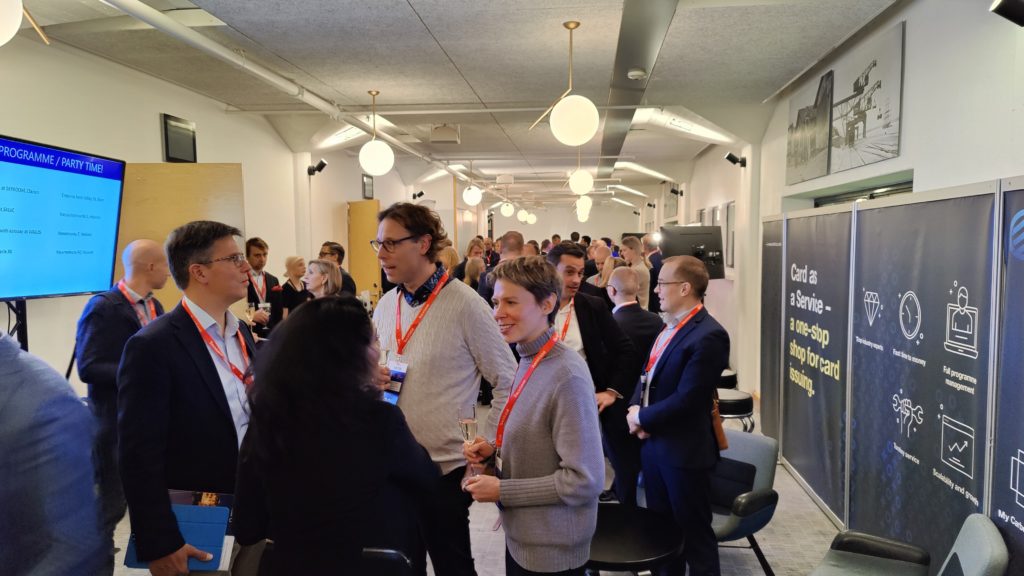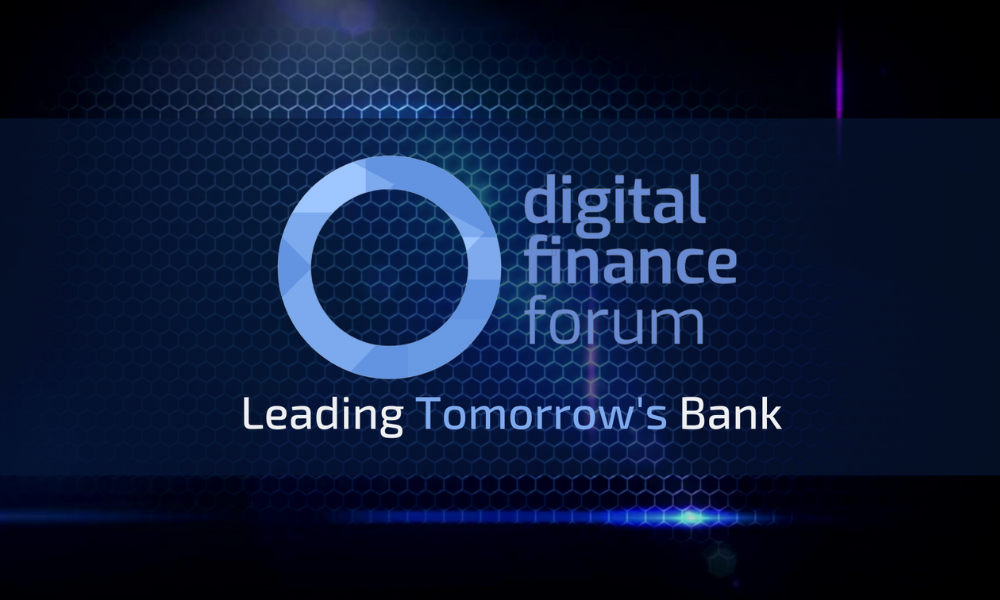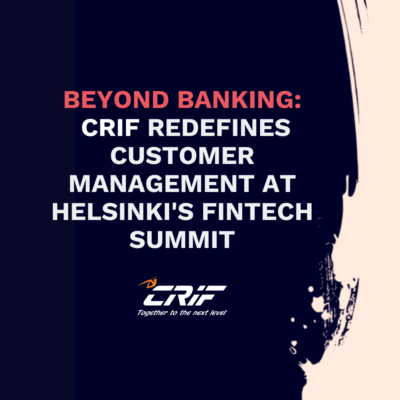For the 10th time, Digital Finance Forum brought the industry pioneers together on December 8th in Helsinki.
Nearly 300 financial industry decision-makers from banks, fintech companies, service providers, and the public sector found their way to the event venue through the blizzard.
Helsinki Fintech Guide 2022 was also published at the event.
From economic overview to ESG and new banks on the block
The day was opened by Aki Kangasharju, Managing Director of the Research Institute of the Finnish Economy, who gave an overview of the current economic situation – both in Europe and globally – and drew parallels with previous tricky times.
After the overview, it was time to turn our attention to a different kind of challenge faced today – sustainability. Katja Keitaanniemi, CEO of OP Corporate Bank, highlighted that the ESG train is moving fast, but that regulation is only one reason for sustainable banking – the customer demand is a real force behind the change as well.
One of the key moments of the day was the introduction of Finland’s newest bank – Fellow Bank. CEO Teemu Nyholm and investor Tero Weckroth took the stage to share the reasoning behind pivoting from a P2P lender lending platform into a challenger bank. The first part of their presentation was dedicated to explaining the strategy of becoming a digital, but still, personal bank, to work in the profitable areas of banking services.
The second part saw Mr. Weckroth giving an investor’s viewpoint, with some rather thought-provoking graphs on challenger banks compared to traditional ones, and how the valuation numbers were off the charts.
Platforms & Open Banking
After a networking break, the second quarter was kicked off by Christoffer Malmer, head of SEBx – a chapter of the Skandinaviska Enskilda Banken AB (SEB), whose purpose is to build new products and explore new tech. A lot of their work has been around the platform economy and embedded services, and as Bill Gates once said “Banking is necessary, banks are not”. Mr. Malmer’s approach was “Bring banking to wherever it is needed”.
At the beginning of 2023, SEB will establish SEB Embedded business line focused purely on Banking as a Service.
Next up was a panel discussion on applying platform thinking and new technologies. The panel – Pekka Suomalainen (Savings Banks Group), Lasse Mäkelä (Multitude), Sami Uski (Tietoevry), and Fredrik Ulvenholm (Vilja Solutions) – shared their different platform journeys and how they are bringing benefits to their customers and stakeholders alike. Platform thinking is becoming popular and there are already many successful applications in the Nordics. The lively discussion was moderated by Fintech Farm’s Johanna Andersén.
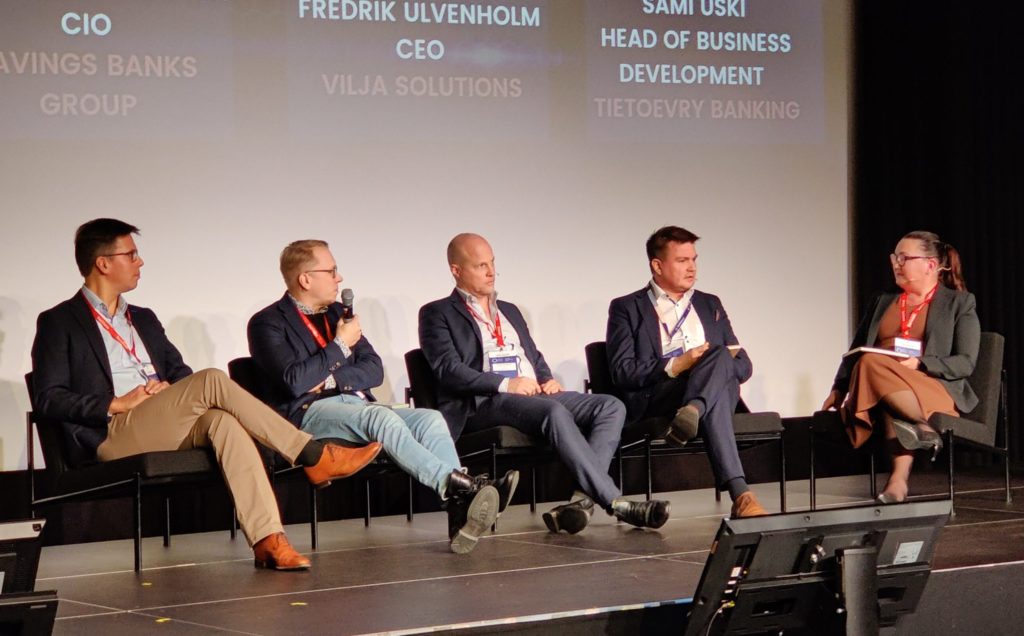
After the panel, two recovering bankers – Sarah Häger, former Nordea Open Banking director, current Regional Manager at Enable Banking, and Johanna Andersén – had a Q&A session on Open Banking. As Open Banking has become more realistic, now is the time to focus on APIs for corporate clients and treasuries. Open Finance will change the scenery again and for sure, the future is all about open data.
The first half of the day finished with Adam Ryman’s (Sambla Group) and Vesa Moisio’s (Tink) presentation about consumer lending 2.0. They explained how Open Banking has transformed the lending process and what its benefits are for the consumer, broker, and creditor.
Value through operations
To open the afternoon, Nordea’s Head of Operations Ossi Leikola took the stage to tell how they are creating value through operations. Nordea has achieved over 10% annual gross savings by mainly digital enablement and automation. “We provide trust and bits – nothing physical,” summarized Mr. Leikola.
Comarch’s Maciej Sałata and Seweryn Bak updated us on how they are working with BNP Paribas in Poland to renew their SME and corporate banking services. “Platform of the future is composable,” they summarized.
The second panel discussion of the day brought Christin Tuxen (Danske Bank), Matti Saarinen (Talenom), and Christoffer Rosqvist (Zevoy) to talk about the new era in SME Banking. The discussion was moderated by Kristian Karlsson, from Dittmar & Indrenius. It was great to hear how SME banking has become important for banks and fintechs. There is massive potential in serving the underserved customers, who in return are the cornerstone of our economy.
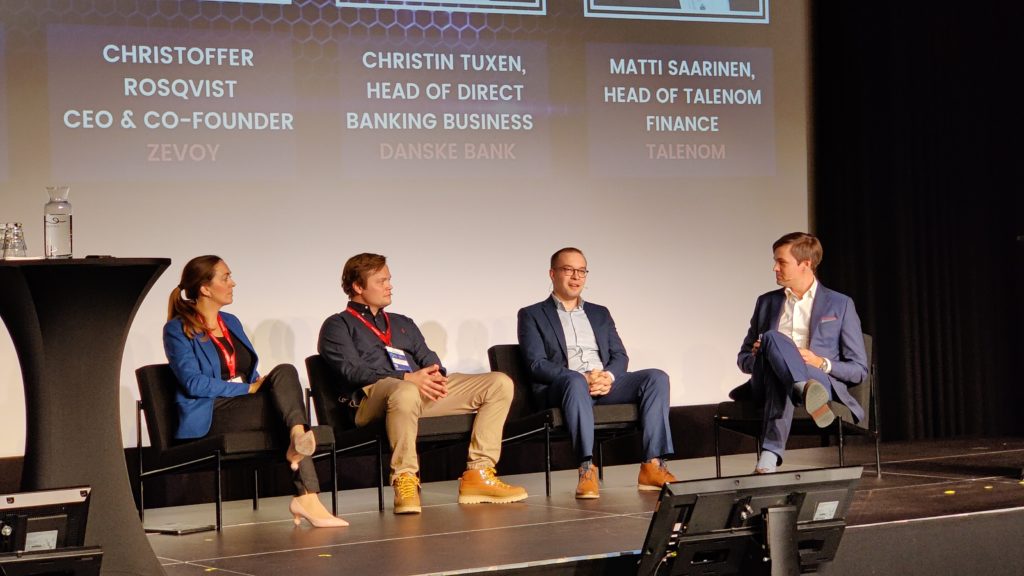
OP Financial Group’s President & CEO Timo Ritakallio talked about how a local bank is facing global megatrends. He highlighted recent developments that have happened in the past few years, but also the big global trends, like urbanization, economic downturn, and the war in Ukraine.
Strategy, embedded payments & metaverse
After a networking break, Aktia Bank’s CEO, Mikko Ayub took the stage to talk about strategy and leadership. He shared 3 core principles of a good strategy and 6 lessons learned from the strategy renewal process of Aktia, which started already in 2017 to bring asset management to the center.
Enfuce’s Venla Pouru talked about non-banks entering the world of payments and how we are transferring into the world of embedded and invisible payments.
The day ended with two presentations about the metaverse. First up was Meta’s Janne Elvelid, who explained what the future metaverse could look like, and what are the possible technologies and applications.
This was followed by Citi’s Nisha Surendran, who focused on the economic potential of the metaverse, and how the financial and regulatory services could be arranged.
Fintech of the Year
At the end of the day, it was time for the Fintech of the Year final pitches. Of the excellent five finalists: Epassi, Fennoa, iconicchain, Snowfox AI and The Upright Project – The Upright Project was the one to bring the trophy home this year. Read more about the winner here.
Summary
Three areas popped up in nearly every discussion:
Platforms – Operating models like Banking as a Service, are getting more popular, and banks are starting to see the significant business potential within them. On the other side, platform thinking on the tech side, where modular and connected tech is replacing more conventional software is happening.
Transformation – All the financial institutions have been through transformation processes, and will be doing them in the future as well. Transformation is crucial and will be driven to meet not only business goals but also the changing regulation and competition.
Emerging technologies – While we may have to wait for the Web3 or metaverse revolution to become reality for a while, we are gradually going to see emerging technologies being applied in the world of financial services.
